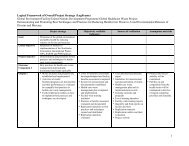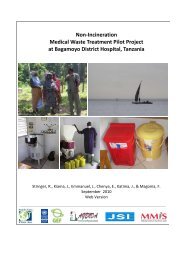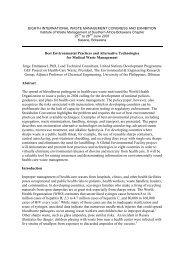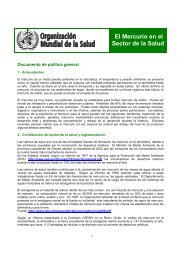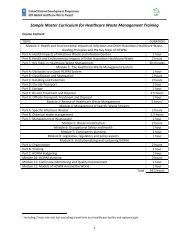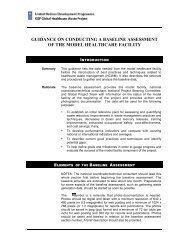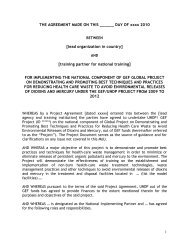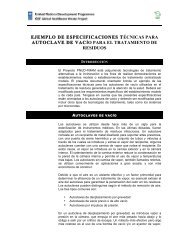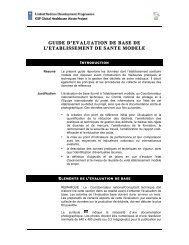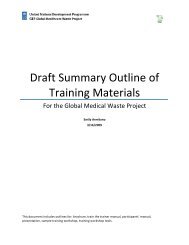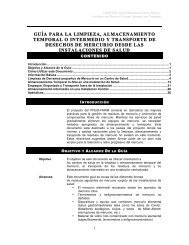Latvia
Latvia
Latvia
Create successful ePaper yourself
Turn your PDF publications into a flip-book with our unique Google optimized e-Paper software.
Health systems in transition<br />
<strong>Latvia</strong><br />
Table 3.5<br />
Payment methods for health services<br />
Family health care services<br />
Dental services<br />
Outpatient specialists<br />
Laboratory tests and visual<br />
diagnostics<br />
Inpatient services<br />
National programmes e.g. TB, Fixed budgets.<br />
HIV/AIDS, infectious diseases<br />
Source: Authors’ own compilation.<br />
Capitation, additional fixed payments, fee-for-service payment<br />
per specific activity, bonus payments.<br />
Fee-for-service payment per activity according to tariff.<br />
Consultant specialty-specific episode tariff, fee-for-service per<br />
specific activity, flat rate payments.<br />
Fee according to a tariff.<br />
Bed-day tariff plus fee-for-service per specific activity, e.g.<br />
operation and examination, case-based payment.<br />
Outpatient services<br />
In the mid-1990s, outpatient services began to be paid according to a “point<br />
system”. Each service was assigned a number of points according to a scale<br />
of service intensity. The payment of provider institutions (polyclinics) was<br />
determined by the number of points corresponding to the services delivered<br />
by doctors and nurses. This payment system proved to encourage costly<br />
interventions and provision of a volume of services greater than necessary, and<br />
was therefore gradually abandoned.<br />
At the end of the 1990s, a capitation payment scheme was introduced for<br />
GPs, who extensively began to change their legal status from employees in<br />
polyclinics to self-employed in their own practices, which they either set up<br />
individually or rented space within the facilities of polyclinics. Specialist<br />
services were still paid according to the list of interventions.<br />
At the time of writing, primary care services payment schemes also include<br />
the addition of fees for defined activities and bonus payments. GPs also receive<br />
fixed payments, such as a practice allowance, a PHC nurse allowance and some<br />
additional payments for the number of chronically ill patients on their list.<br />
Services provided by outpatient specialists receive a flat rate per episode of<br />
illness. Every outpatient specialty has had its own specialty-specific episode<br />
rate calculated. If specialists perform costly procedures, these are paid for<br />
additionally for each episode according to specific tariffs. Patients have to pay<br />
a patient fee in addition to the consultant episode payment. Diagnostic services<br />
(lab, visual diagnostics) are paid for according to specific tariffs.<br />
Several outpatient specialty services (such as psychiatry, TB, STIs, and<br />
diabetes) are paid for by means of a flat rate mechanism, according to a budget<br />
which includes salaries for personnel and costs of running the services.<br />
96



